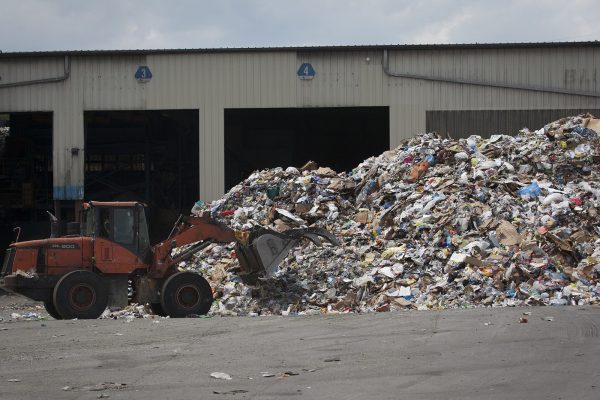Poll Shows a Majority of Voters Support Recycling Refund Programs
COMMENTARY

Recycling refund programs present an opportunity to reduce greenhouse gas emissions, create jobs and bolster the supply chain. No wonder 81% of voters support these programs.
It would not qualify as breaking news to say that America is divided. It’s obvious to anyone who consumes news or sits around the dinner table with family members. My work involves measuring public opinion on a variety of issues, so every day I see just how difficult it is to find policy ideas with strong, bipartisan public support.
So, the results of our recent nationwide poll of voters on recycling refund programs, also known as beverage container redemption programs, stood out to me and were both surprising and telling. A June 2022 poll of 1,000 adults conducted by Lincoln Park Strategies found that 81% of voters support recycling refund programs. In states where these programs already exist, support is even stronger, jumping to 90%.
What makes these numbers so instructive is that they prove it is still possible to have public policies that cut through all the partisan noise and garner strong support across the political spectrum. In this case, it is a program aimed at increasing the number of beverage containers that get recycled.
Recycling refund programs place a fully refundable deposit — usually five or 10 cents — on beverage containers made from different materials like aluminum, glass, plastics and others. Consumers pay the deposit at the time of purchase. Once they are done with the empty beverage containers, they can redeem them to obtain their refund.
A key reason why these kinds of programs have such strong bipartisan support is that they have a proven track record of incentivizing recycling, reducing litter and providing clean materials to serve as recycled content in new beverage containers. Currently, 10 states have active recycling refund programs, and generally, those states see higher recycling rates than states without these programs.
Returned containers help reduce litter and provide cleaner materials for manufacturers to use as recycled content in beverage containers. By increasing the domestic supply of recycled material for the containers people depend on, it reduces the use of new material, which in turn can help reduce carbon emissions. And by leading to more recycling, these programs also create more jobs than when beverage containers are landfilled.
Some of the key findings from our poll include that 72% of all respondents support the idea that these recycling refund programs should incentivize companies to use materials with high economic value. Seventy-two percent of Republicans polled, as well as 85% of Democrats, cited the role recycling and reusing beverage containers plays in lowering greenhouse gas emissions as a strong reason to support these programs. Respondents also cited encouraging more recycling, which creates more jobs than when items are sent to landfills, as a strong reason to support these programs. The poll found this reason garnered strong support from 75% of Republicans and 83% of Democrats.
While so many policy issues continue to divide the nation across partisan and ideological lines, the results of this poll show it is still possible for policies to break through the usual political disputes. The lesson here seems to be that it’s essential to have a policy that’s practical, easy to understand and with clear benefits. Recycling refund programs have a clear and successful track record, as is the case with the 10 states that already have these programs in place. It is clear there is broad support and momentum for instituting these types of programs. Time will tell if policymakers seize on the opportunity.
Stefan Hankin is president of the analytic research firm Lincoln Park Strategies. You can reach him on Twitter @LPStrategies.























